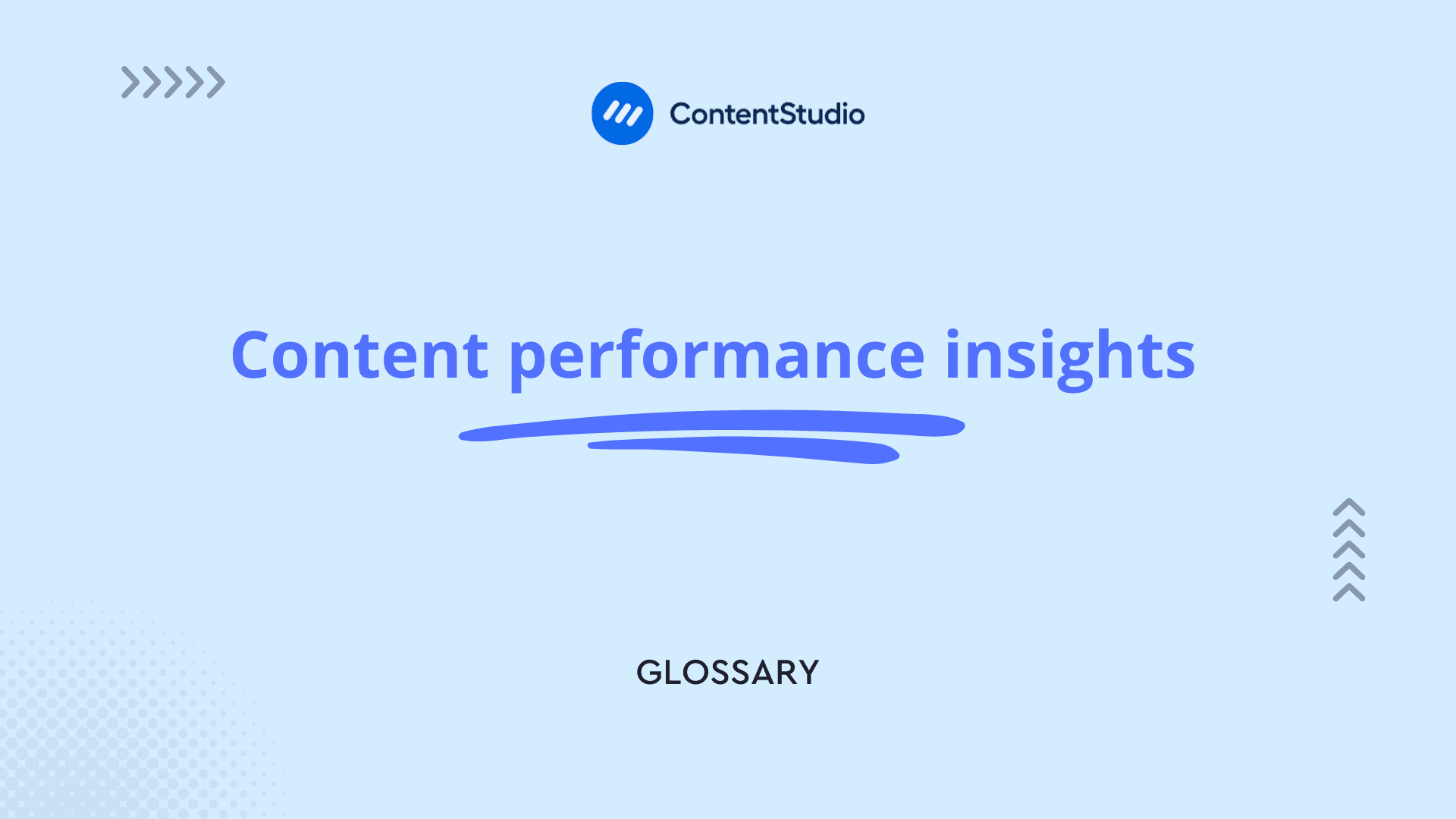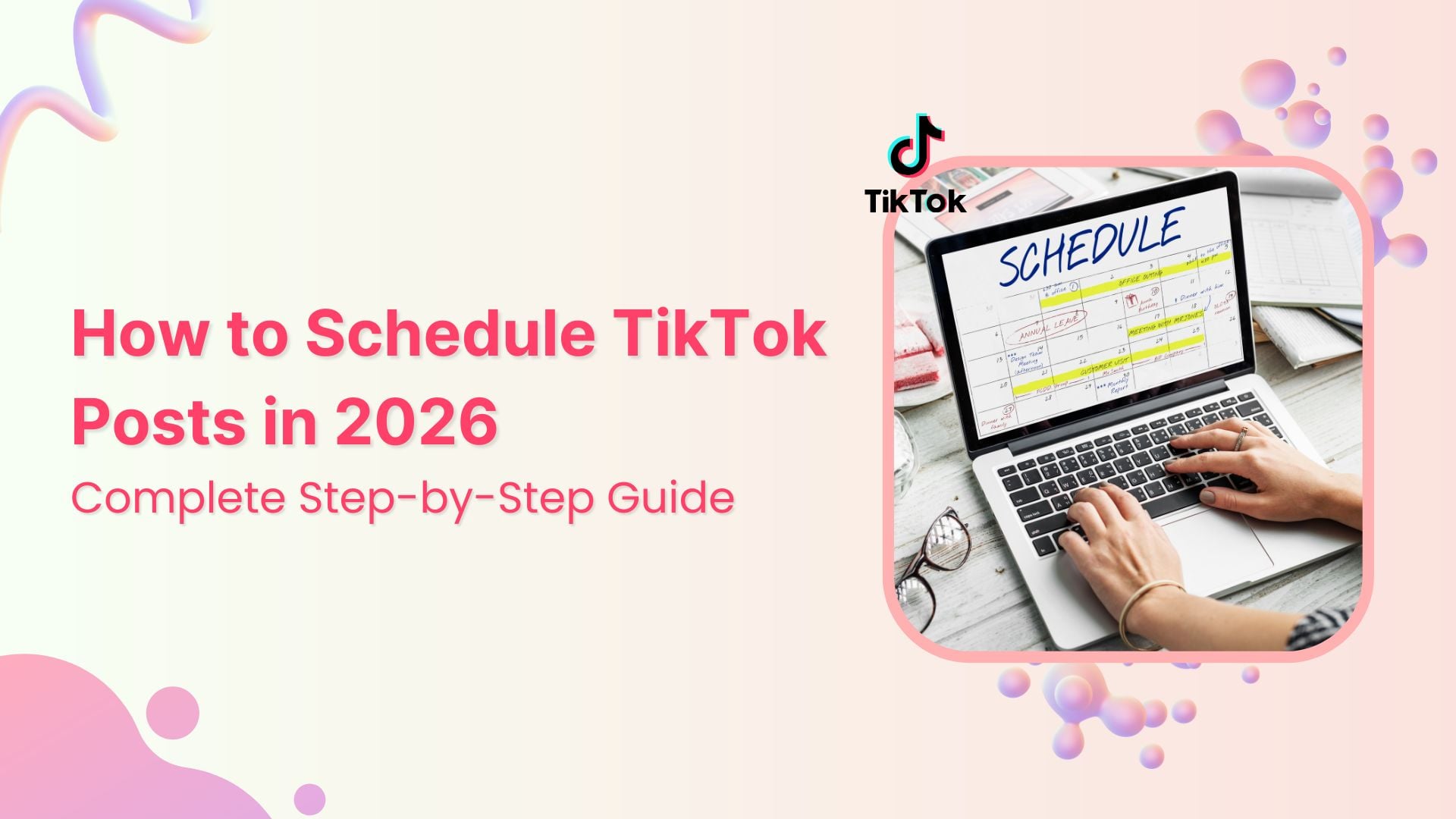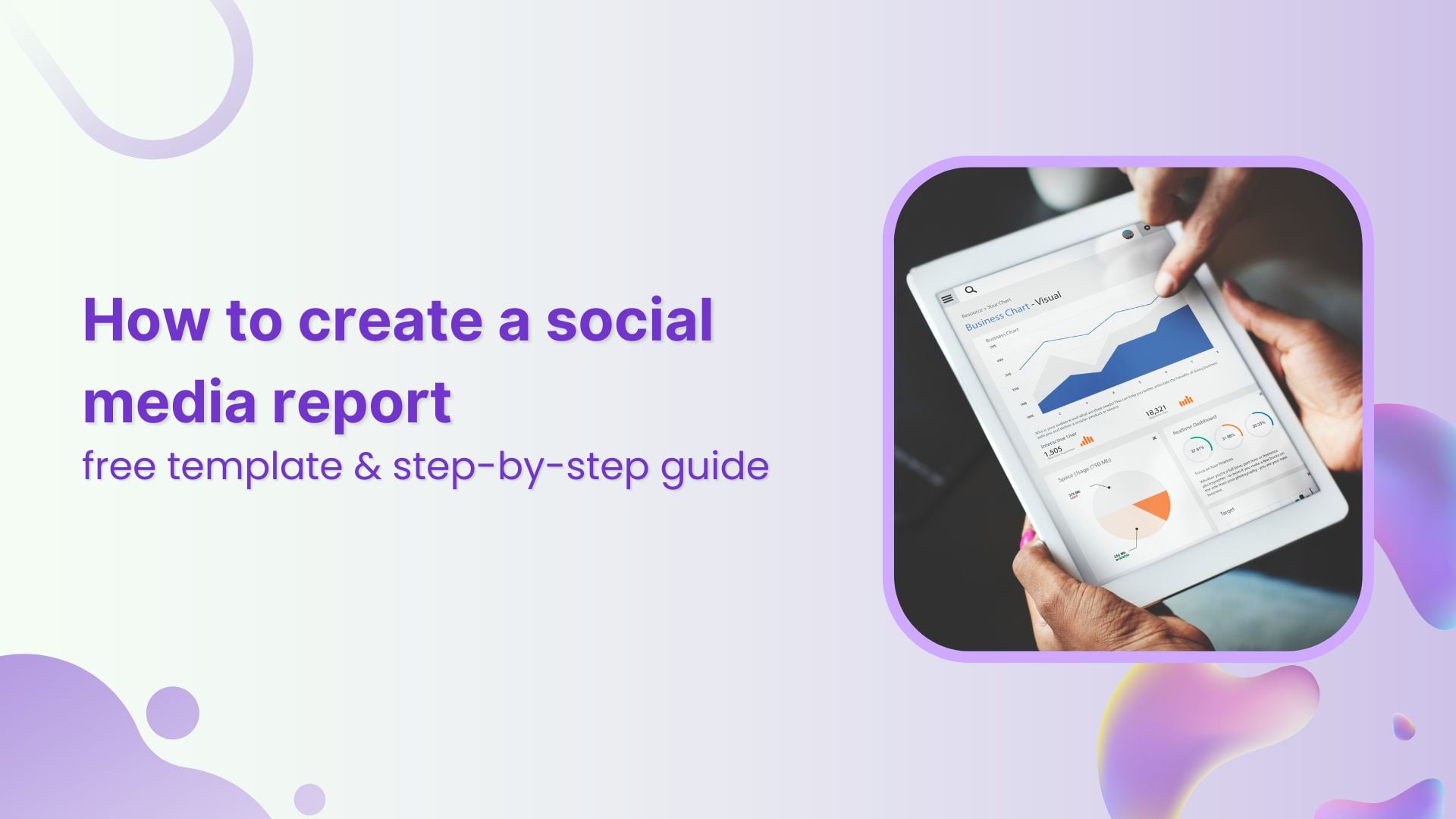Bulk-generate & schedule posts in seconds with Smart Scheduling. Try now!
Content performance insights

What are content performance insights?
Content performance insights refer to the analytical data and metrics that measure how effectively your content resonates with your target audience across various digital platforms. These insights encompass a wide range of performance indicators, from engagement metrics and conversion rates to audience behavior patterns and content reach, providing valuable information to optimize your content strategy and achieve better results.
Understanding the fundamentals of content performance analysis
Content performance analysis is more than just collecting numbers and data points. It's about understanding the story behind your content's impact on your audience and business goals. By analyzing various metrics and indicators, you can gain a deeper understanding of what content works, why it works, and how to replicate that success across your content ecosystem.
When you measure content performance effectively, you're essentially listening to your audience's responses and preferences through data. This understanding allows you to create more targeted, engaging, and valuable content that serves both your audience's needs and your business objectives.
Key metrics that define content performance
Engagement metrics
Engagement metrics reveal how your audience interacts with your content. These interactions can take various forms, depending on the platform and content type. Understanding these metrics helps you gauge the immediate impact of your content and its ability to capture and hold the audience's attention.
Key engagement indicators include:
- Time spent on content
- Scroll depth
- Social shares and reactions
- Comments and discussions
- Click-through rates
- Bounce rates
Each of these metrics provides unique insights into how your audience connects with your content. For example, a high time-on-page combined with good scroll depth suggests that your content is compelling enough to hold the reader's attention, while frequent social shares indicate that your audience finds the content valuable enough to recommend to others.
Conversion metrics
Conversion metrics measure how effectively your content drives desired actions. These metrics are crucial for understanding the business impact of your content strategy and its ability to move audiences through your marketing funnel. Different types of content may have different conversion goals, from newsletter signups to product purchases.
Important conversion indicators include:
- Lead generation rates
- Email subscription rates
- Download rates for gated content
- Product purchase rates
- Form completion rates
- Call-to-action click rates
Understanding these metrics helps you optimize your content for better conversion performance while maintaining audience value and engagement.
Advanced performance analysis techniques
Content attribution analysis
Content attribution analysis helps you understand how different pieces of content contribute to your overall marketing success. This analysis tracks the customer journey across multiple touchpoints, revealing which content pieces play crucial roles in moving prospects toward conversion.
By implementing proper attribution modeling, you can:
- Identify high-impact content at different funnel stages
- Understand content interaction patterns
- Optimize content distribution for better results
- Allocate resources more effectively
- Improve content ROI measurement
Audience behavior analysis
Understanding how your audience behaves when interacting with your content provides valuable insights for optimization. This analysis goes beyond basic metrics to examine patterns and trends in audience interaction.
Key aspects of behavior analysis include:
- Content consumption patterns
- Navigation paths through content
- Exit points and drop-off rates
- Device and platform preferences
- Time-based engagement patterns
This detailed understanding helps create more engaging content experiences aligned with audience preferences and behaviors.
Tools and technologies for measuring content performance
Analytics platforms
Modern analytics platforms provide comprehensive tools for tracking and analyzing content performance. These analytics tools can integrate data from multiple sources to provide a complete picture of content effectiveness.
Common features include:
- Real-time performance tracking
- Custom report generation
- Audience demographic analysis and segmentation
- Conversion tracking
- A/B testing capabilities
- Predictive analytics
Heat mapping and user behavior tools
Heat mapping tools provide visual representations of how users interact with your content. These tools can reveal:
- Click patterns
- Scroll depth
- Mouse movement
- Attention hotspots
- User navigation paths
This visual data helps identify engagement patterns and optimize content layout and structure for better performance.
Implementing performance insights into content strategy
Data-driven content planning
Using performance insights in content planning helps create more effective content strategies. This approach involves:
- Analyzing historical performance data
- Identifying successful content patterns
- Understanding audience preferences
- Optimizing content formats
- Planning distribution channels
- Setting measurable goals
By basing decisions on actual performance data, you can create content that better serves your audience and business objectives.
Content optimization process
Continuous content optimization based on performance insights helps maintain and improve content effectiveness over time. This process includes:
- Regular performance reviews
- Content updates and improvements
- Format and presentation adjustments
- Distribution channel optimization
- A/B testing implementation
Impact on business decision making
Resource allocation
Performance insights help make informed decisions about resource allocation in content creation and marketing. Understanding which content types and topics perform best helps prioritize investments and efforts effectively.
Strategy refinement
Regular analysis of content performance helps refine overall marketing and content strategies. This includes:
- Adjusting content focus areas
- Optimizing distribution channels
- Improving audience targeting
- Enhancing content formats
- Refining messaging approaches
Best practices for content performance analysis
Setting meaningful KPIs
Establishing relevant key performance indicators (KPIs) is crucial for effective content performance analysis. Your KPIs should:
- Align with business objectives
- Be measurable and specific
- Focus on actionable metrics
- Account for different content types
- Consider multiple success factors
Regular performance reviews
Implementing regular performance reviews helps maintain content effectiveness and identify optimization opportunities. These reviews should:
- Follow a consistent schedule
- Use standardized evaluation criteria
- Include stakeholder input
- Generate actionable insights
- Lead to concrete improvements
Future trends in content performance analysis
AI and machine learning applications
Artificial intelligence and machine learning are increasingly important in content performance analysis. These technologies enable:
- Predictive performance analysis
- Automated optimization suggestions
- Real-time content adjustments
- Advanced pattern recognition
- Personalized content recommendations
Advanced attribution modeling
The future of content performance analysis includes more sophisticated attribution models that can:
- Track cross-channel impact
- Measure long-term content value
- Account for multiple touchpoints
- Evaluate indirect contributions
- Assess content synergies
Conclusion
Content performance insights are essential for creating and maintaining effective content strategies in today's digital landscape. By understanding and properly analyzing these insights, organizations can create more impactful content that better serves their audience while achieving business objectives.
Success in content marketing increasingly depends on the ability to gather, analyze, and act on performance insights effectively. Organizations that master this process gain a significant competitive advantage in their content marketing efforts.
Regular monitoring and analysis of content performance, combined with strategic application of insights, leads to continuous improvement in content effectiveness and better business results. As analysis tools and techniques continue to evolve, the ability to derive and act on content performance insights will become even more crucial for content marketing success.

Create, plan, schedule, and publish posts on all social media networks
Recommended for you


Powerful social media management software
14-day free trial - No credit card required.


